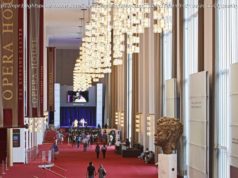Opening was delayed because of Typhoon Mangkhut, but experts warn virus could still jump mosquito generations and resurface
Doctors urged Hongkongers not to lower their guard against dengue fever even as a public park believed to be the biggest source of a recent outbreak opened on Saturday after nearly two months of closure.
Lion Rock Country Park, thought to be one of the origins of an epidemic, was closed on August 17 for workers to destroy mosquito breeding sites. Authorities have declared the end of that outbreak.
Before the closure, 11 cases of the mosquito-borne disease were reported within four days, with nine cases traced back to the 5.07-hectare park.
As of September 4, there were 29 dengue fever cases recorded in the city, compared with only one local case confirmed in the same period last year.
The dengue virus is spread by the Aedes albopictus mosquito, which is common in Hong Kong. Those infected are likely to display symptoms such as high fever, severe headache and muscle pain. While fatalities are rare, the risks are higher for elderly patients.
On Friday, the Leisure and Cultural Services Department, which oversees 42 public parks, zoos and gardens in Hong Kong, announced that Lion Rock Country Park would reopen at 9am on Saturday, three days after the Centre for Health Protection announced the end of the dengue epidemic.
The Food and Environmental Hygiene Department, which conducted inspections at the park before its opening, was “satisfied” with the “mosquito control work”, according to a government spokesman.
Undersecretary for food and health Dr Chui Tak-yi said on Saturday the decision to reopen the park was based on three reasons.
Firstly, sufficient mosquito control work had been carried out in and around the park during the closure. Secondly, it has been more than six weeks since the last new local infection was recorded on September 4 – a time period clinically indicating the end of the outbreak. Thirdly, mosquito samples collected from the park were found to be free of the dengue virus.
Chui called on the public to maintain anti-mosquito measures, promising that authorities would not lower the level of control work at the park.
Professor Ivan Hung Fan-ngai, an infectious diseases expert from the University of Hong Kong, said the park should have been reopened a few weeks ago as the endemic had “long passed”. But he reminded the public to stay alert.
“Upon return to Hong Kong [from endemic areas], [people] should use insect repellent for two weeks,” Hung advised.
Popular travel destinations with higher dengue risks include Thailand, Singapore and Japan, which recorded 61,197,2,139 and 130 cases respectively this year.
Hung also urged authorities to step up mosquito control earlier next year. “The government should start preparations in early May,” he said.
Dr Joseph Tsang Kay-yan, another infectious disease expert serving as an honorary consultant to the Department of Health, said the city should be on the lookout for new outbreaks for at least another six months.
Tsang said another round of infections might surface if mosquito control was not effective, as the virus could be transmitted through different insect generations.






